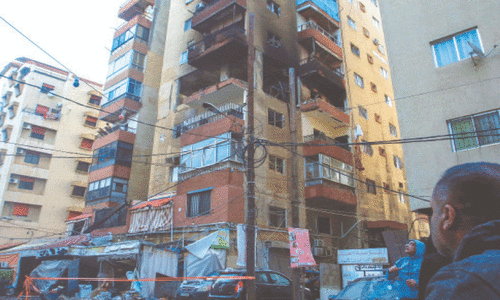ALTHOUGH there are reasons why Pakistan’s ties with neighbouring Iran have hardly been robust, it is time to remove the irritants and rebuild the relationship. In a wide-ranging interview with this paper over the weekend, the Iranian ambassador to Pakistan indicated as much as he talked of both the obstacles in the relationship and the scope for improvement. A turbulent border, infested with criminal gangs and small-time insurgent groups, and alleged cross-border links of individuals such as Indian spy Kulbhushan Jadhav and the late Afghan Taliban leader Mullah Mansour are among these obstacles. Besides, there is the matter of unfinished projects, the most obvious example being the joint gas pipeline initiative. International sanctions on Iran have been used as an excuse for Pakistan’s foot-dragging on work on its territory, although some in policy circles have felt that the Gas Purchase Agreement was signed prior to the sanctions, and thus lay outside their ambit. Given the size of the other projects in the federally funded PSDP, it can’t even be argued that resources to finance construction on Pakistan’s side are not available domestically. Pakistan, too, has had its list of concerns, among them the role of Iran in sectarian tensions inside this country and Tehran’s tilt towards New Delhi in recent years.
But then, as the ambassador pointed out, engagement on other fronts is vital. Trade in commodities and cooperation in sectors like aviation, ports and shipping, and science and technology can help boost ties; and, unlike in the case of Afghanistan and India, where long-standing grievances have been a stumbling block in relations with Pakistan, there is no discernible reason why Iran should seek to destabilise Pakistan. With no substantial historical baggage to weigh them down, working together to remove impediments in the way of enhancing cooperation should be a priority.
In his recent visit to Tehran, army chief Gen Qamar Bajwa assured President Rouhani that Pakistan desired an enhancement in bilateral ties. This deserves to be followed up energetically. Iran has repeatedly called for increasing cooperation between the two ports of Gwadar and Chabahar, as well as participating in CPEC. The remnants of the sanctions, that informally linger with global banks reluctant to engage with those doing business with Iran, needs to be navigated skilfully. While Pakistan’s deepening engagement with the Saudi-led military alliance that has shunned Iran complicates the picture, the leadership here can still take an independent stance by not allowing foreign powers to dictate our foreign policy agenda. Indeed, Pakistan and Iran have much to gain through the expansion of ties, and an earnest effort in that direction is possible, provided the will is there.
Published in Dawn, December 11th, 2017











































